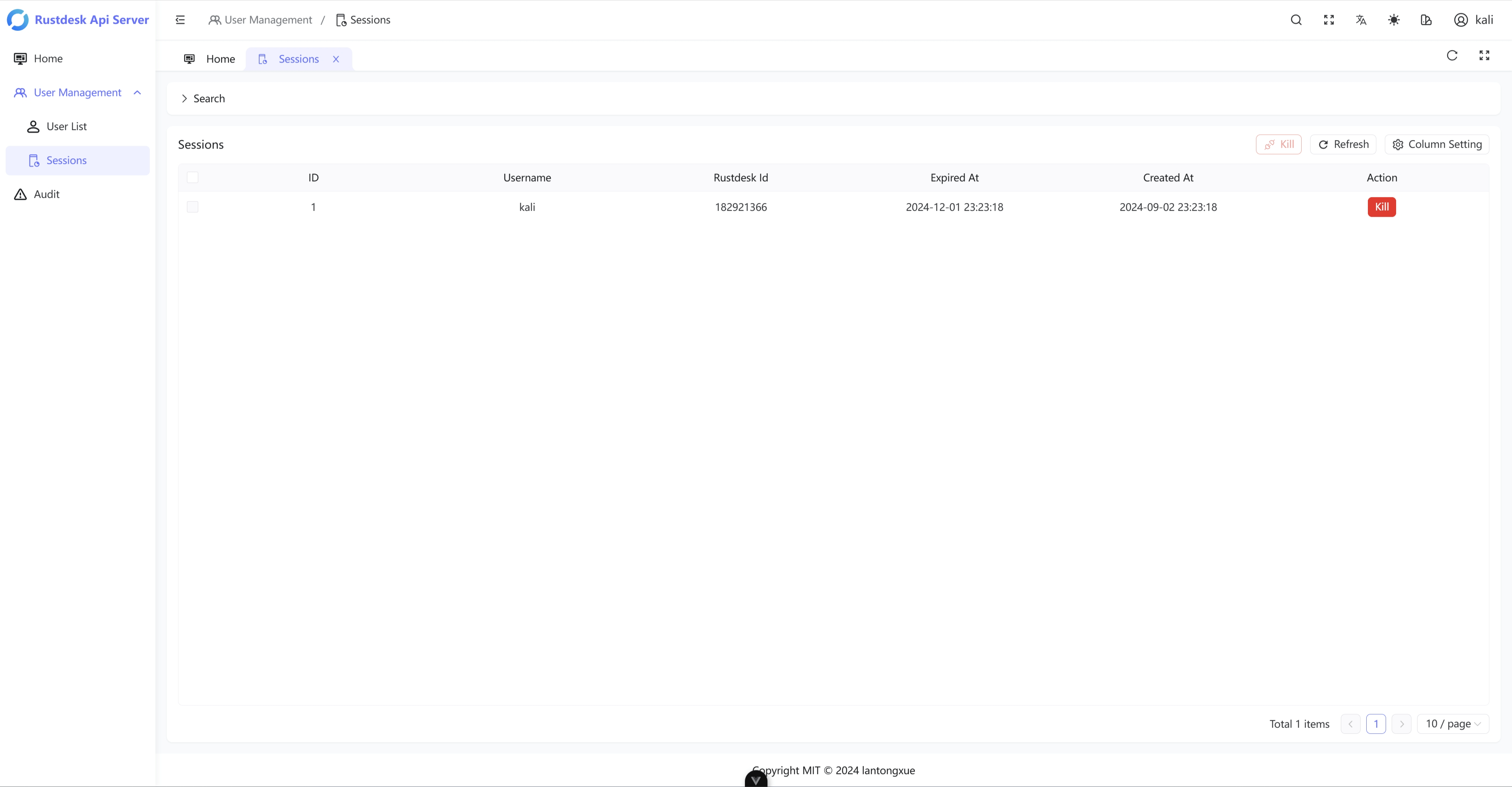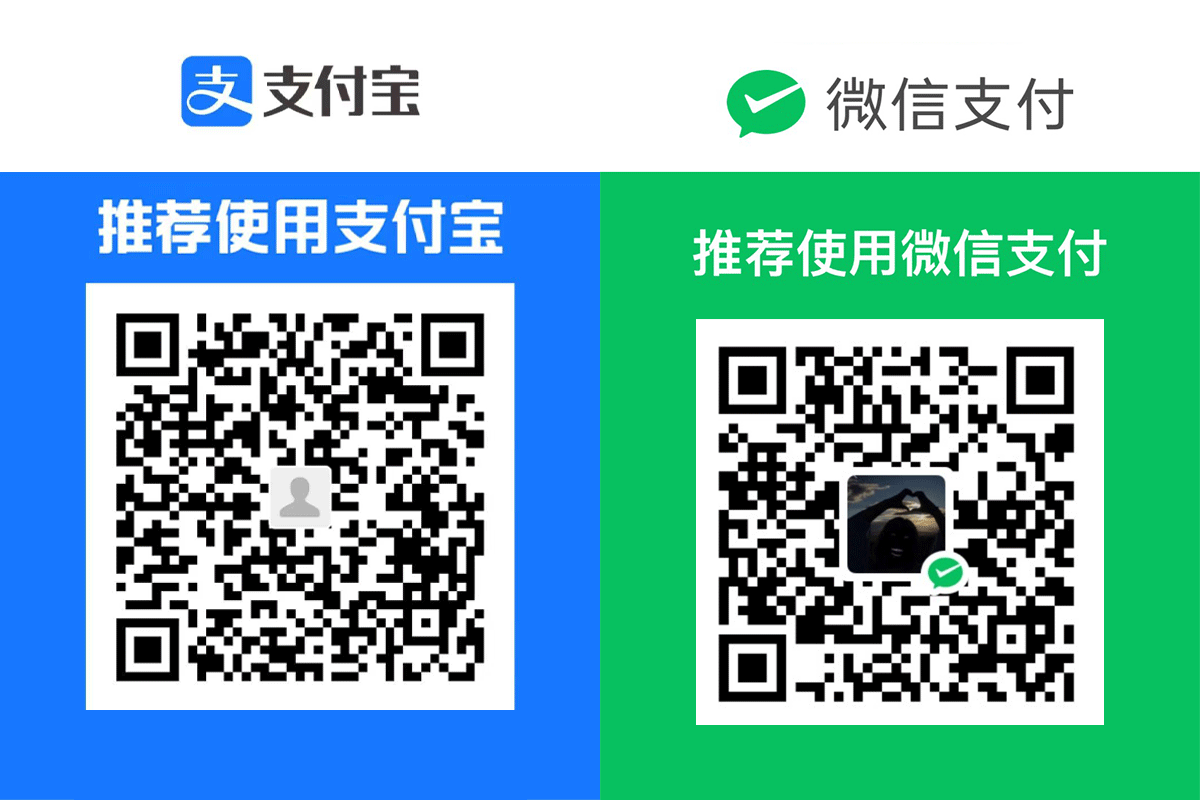This is an open source Api server based on the open source RustDesk client, the implementation of the client all Api interfaces, and provides a Web-UI for the management of data.
We strive to achieve functionality with the simplest possible code and structure!
- Synchronized RuskDesk version (Currently adapted client: 1.2.7)
- Pure Go implementation of all interfaces
- Visual management interface
- Internationalization support
- Statistics panel
- User Management
- Session Management
- Log Audit
- hbbr&hbbs management
- Lightweight & Cross Platform
- Minimal sqlite
- Support for major operating systems and architectures
- pull image
docker pull ghcr.io/lantongxue/rustdesk-api-server-pro:latest- run image
docker run --name=rustdesk-api-server-pro -d -p 8080:8080 ghcr.io/lantongxue/rustdesk-api-server-pro:latest- add your admin account
docker exec rustdesk-api-server-pro rustdesk-api-server-pro user add admin yourpassword --adminThe container image listens on port
8080by default.
Default configuration file path
/app/server.yaml, you can specify your own configuration file with-v.
- Golang >= 1.21.4
- NodeJs ~= latest(recommend LTS)version
- pnpm ~= latest
- Get source code
git clone https://github.com/lantongxue/rustdesk-api-server-pro.git- Build the api-server
cd backend && go build- Build the frontend
cd soybean-admin && pnpm i && pnpm buildAssuming the compiled binary file is called rustdesk-api-server-pro.exe.
- Synchronize the database table structure
rustdesk-api-server-pro.exe sync- Add your first user
rustdesk-api-server-pro.exe user add admin yourpassword --admin--admin is optional, when enabled the added user is an administrator user, otherwise it is a regular user
- Start the server
rustdesk-api-server-pro.exe startListening on port
8080by default
For this step you need a web server software (e.g. nginx, apache, etc.), by copying the packaged product to the web root directory.
Typically, the packaged product is in the soybean-admin/dist directory.
Reverse Proxy Configuration, you need to configure reverse proxy in nginx or other WEB servers, through the reverse proxy server can access the interface address correctly.
Here's my backend reverse proxy configuration for you to refer to:
#PROXY-START /api for rustdesk client
location ^~ /api
{
proxy_pass http://127.0.0.1:8080;
proxy_set_header Host 127.0.0.1;
proxy_set_header X-Real-IP $remote_addr;
proxy_set_header X-Forwarded-For $proxy_add_x_forwarded_for;
proxy_set_header REMOTE-HOST $remote_addr;
proxy_set_header Upgrade $http_upgrade;
proxy_set_header Connection $connection_upgrade;
proxy_http_version 1.1;
# proxy_hide_header Upgrade;
add_header X-Cache $upstream_cache_status;
}
#PROXY-END/
#PROXY-START /admin for web-ui
location ^~ /admin
{
proxy_pass http://127.0.0.1:8080/admin;
proxy_set_header Host 127.0.0.1;
proxy_set_header X-Real-IP $remote_addr;
proxy_set_header X-Forwarded-For $proxy_add_x_forwarded_for;
proxy_set_header REMOTE-HOST $remote_addr;
proxy_set_header Upgrade $http_upgrade;
proxy_set_header Connection $connection_upgrade;
proxy_http_version 1.1;
# proxy_hide_header Upgrade;
add_header X-Cache $upstream_cache_status;
}
#PROXY-END/Usage:
rustdesk-api-server [command]
Available Commands:
completion Generate the autocompletion script for the specified shell
help Help about any command
rustdesk About rustdesk-server command
start Start the api-server
sync The api-server database synchronization
user User management
Flags:
-h, --help help for rustdesk-api-server
Use "rustdesk-api-server [command] --help" for more information about a command.We will continue to follow up the RustDesk client and implement the corresponding interfaces, which will be a long-term plan.
If you found this project helpful, why not buy the developers a cup of coffee :)
Thank you for your sponsorship
You can view the full license here
This project is under the terms of the MIT license.





